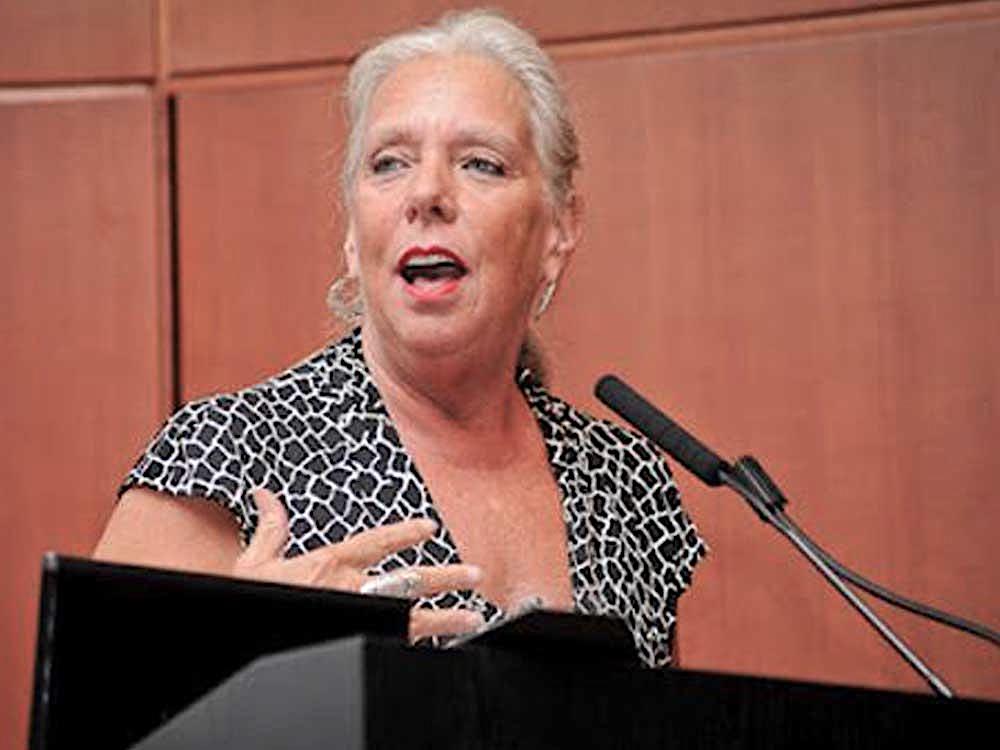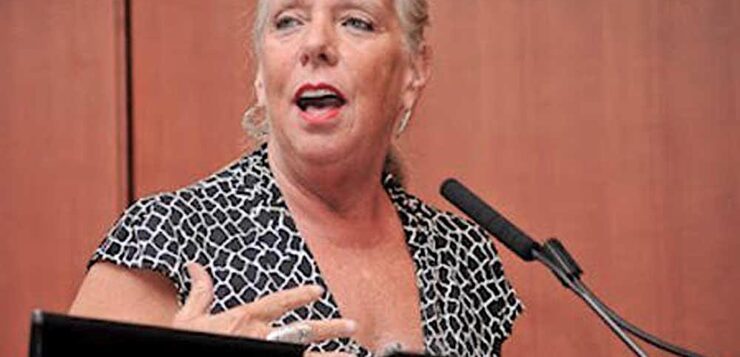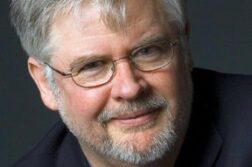
I FIRST MET Amber Hollibaugh in 1979, when I spent several months in San Francisco doing research for what became Sexual Politics, Sexual Communities. My first weekend there I was on a panel on gay and lesbian history organized by the Radical History Network. Such events were rare in 1979. One of those in the audience was a tall, imposing blonde named Amber. She told me she worked at Modern Times, a bookstore run by a left-wing collective, and that I should come by. The bookstore was not far from the Castro, and a few days later, when I walked in, she was at the counter reading Jeffrey Weeks’ pioneering book Coming Out, one of the first LGBT narrative histories. We talked for a bit, but customers needed her attention, so I left.
The following Monday, the verdict came down in the trial of Dan White for the assassination of Harvey Milk and George Moscone. He received the lightest possible sentence for two cold-blooded murders, and the call immediately went out to assemble at City Hall to protest. The plaza in front of it was packed when I arrived. Speakers addressed us—the two I remember were Harry Britt and Sally Gearhart—and all, without exception, urged us to stay calm. Harvey would want us to be peaceful, they said.
And then this tall, imposing blonde came to the podium. Words flowed out of Amber, and her message was clear: “You have a right to be angry,” she shouted. “What happened was a miscarriage of justice. … Let me see your rage!” The crowd began to explode. Windows in City Hall were smashed, and soon a row of police cars went up in flames. The rest of that night is a blur for me. I returned to the Castro. The police followed and the violence they unleashed was terrifying. But through it all, I remember thinking: “That woman was amazing. I want her in my life.”
Our paths kept crossing. I visited Modern Times for snippets of conversation. The Lesbian and Gay History Project launched that summer, and we were both at several meetings. They organized a public forum on the history of the queer community’s relationship with police, and Amber and I were on the roster. The event’s title was “Spontaneous Combustion” and, when Amber spoke, it felt like the packed auditorium might act out the title!
Finally, after many encounters in public settings, we planned a Saturday breakfast together. We ate and talked. Leaving the restaurant, we kept talking. Hours later, we were still talking as Amber walked backward down the hill, the physical distance growing, until we were finally out of earshot. Those ten hours of conversation launched a friendship that continued for over forty years. We overlapped in New York in the early 1980s and then again for two glorious years in the 2000s, when Amber worked in Chicago. But mostly it was a long-distance relationship, connecting at national conferences like Creating Change and on my trips to my hometown of New York.
Through these decades, our conversation never ended. That Saturday in San Francisco, a major topic was the Briggs Initiative which, the year before, had launched the biggest organizing campaign that queer folks had seen. Amber described making her way through the small communities of northern California and the Central Valley, engaging in conversation with countless individuals who had never met a lesbian before. For this guy who had lived his whole life in NY and had a large queer community around him, I was awed by the courage of this remarkable dyke.
We discussed many other things as well, topics that we never stopped talking about. We talked about the state of the left in our ever-more conservative political environment; about our movement’s evolution from lesbian and gay into LGBTQ and the tendency toward respectability that drove us both crazy; about the increasingly conservative sexual politics of what once was a liberation movement; and about the class and racial boundaries that many movement organizations refused to acknowledge.
Through all these years, Amber remained a bold and tireless activist, translating talk into working for social justice. Arriving in New York just as AIDS began devastating our community, she plunged into the fight against it. She worked for the NYC Commission on Human Rights combatting AIDS discrimination and for Gay Men’s Health Crisis, where she created the first lesbian AIDS project. She was a staffer at the National LGBTQ Task Force. She advanced queer aging issues at Chicago’s Howard Brown Health Center. For years, she directed Queers for Economic Justice—one of the few LGBT organizations that recognized the impact of class oppression on the lives of many queer people.
Amber always managed in her activism to “say out loud what everyone had agreed not to notice.” She constantly called for a “new revolution” that included the sexual desires that so many experience with shame and feel forced to keep secret. She insisted that we embrace “our most dangerous desires” and “fight for a world that values human sexual possibility without extracting a terrible human price.” She strove “to create a movement willing to live the politics of sexual danger in order to create a culture of human hope.” I, and so many others, will never forget her bold, daring, and inspiring work and the smile, laughter, and hugs that kept spirits high even in times that seemed desperate. Rest in power, Amber Hollibaugh.
John D’Emilio, author of Queer Legacies: Stories from Chicago’s LGBTQ Archives, is professor of history at the Univ. of Illinois, Chicago.






